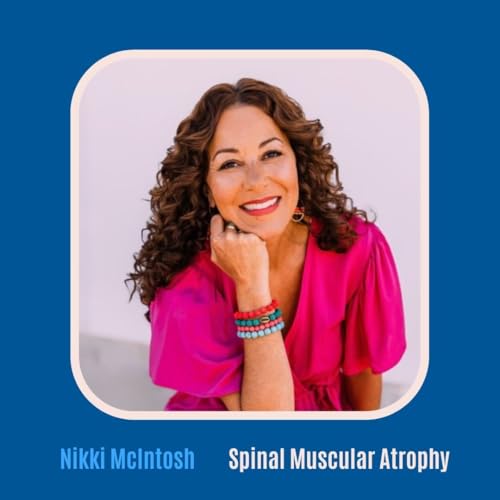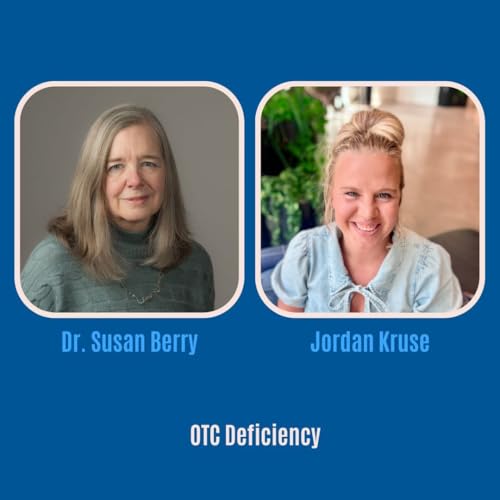In this deeply moving episode of It Happened To Me, we sit down with Elizabeth Ansell, founder of #NotJustFatigue, a nonprofit initiative dedicated to raising awareness about myalgic encephalomyelitis/chronic fatigue syndrome (ME/CFS). This is a condition that is vastly under diagnosed, possibly 90% which would mean it may affect up to 9 million people.
Elizabeth’s life changed dramatically as a young adult when she developed ME/CFS—a complex, debilitating condition often triggered by infection. Since 2016, she has been bed-bound, living with severe fatigue, cognitive impairment, and post-exertional malaise. Yet, from her bed, she has become a powerful voice for change.
Through #NotJustFatigue, Elizabeth educates both the public and medical professionals about this misunderstood illness, challenging harmful myths and confronting the stigma that patients face. In this episode, she opens up about her own diagnostic odyssey, the emotional and physical toll of the disease, and the resilience it takes to advocate while living with severe limitations.
What You’ll Learn in This Episode:
- Elizabeth’s journey to an ME/CFS diagnosis and how it changed her life
- The reality of living bed-bound for nearly a decade
- Why post-exertional malaise is a hallmark—and often misunderstood—symptom
- How #NotJustFatigue is changing public perception and medical understanding
- The connection between ME/CFS and Long COVID
- Strategies for supporting someone living with ME/CFS
- The role of storytelling in advocacy and awareness
- Myths and misconceptions that harm patients
- The emotional toll of medical gaslighting
- Hopes for the future of ME/CFS research and treatment
More About Our Guest:
Elizabeth Ansell, founder of #NotJustFatigue, is an advocate, storyteller, and changemaker for the ME/CFS community. A graduate of the University of Pennsylvania, she has a background in literature and TV production. Bed-bound since 2016, Elizabeth uses her lived experience and creative skills to educate others about ME/CFS, dismantle stigma, and build community for those navigating the same invisible illness.
Here is the visual historical timeline that Elizabeth mentioned during the episode. She also recommends watching #NotJustFatigue’s 15 minute short film about the condition.
An update since we recorded with Elizabeth….
In a rare bipartisan move earlier this month (August 2025), the Senate Labor-HHS FY26 Appropriations Report delivered two major wins for the chronic illness community:
- Formally recognized ME/CFS within the RECOVER Initiative for Long COVID
- Directed NIH to implement the ME/CFS Research Roadmap within 180 days
This is a long-awaited breakthrough for millions of Americans with ME/CFS, a post-viral disease that has no FDA-approved treatment and receives just $13M in funding annually, despite being more common than Multiple Sclerosis. Advocates are calling this a major step forward in pushing NIH toward accountability and treatments.
Connect With Us:
Stay tuned for the next new episode of “It Happened To Me”! In the meantime, you can listen to our previous episodes on Apple Podcasts, Spotify, streaming on the website, or any other podcast player by searching, “It Happened To Me”.
“It Happened To Me” is created and hosted by Cathy Gildenhorn and Beth Glassman. DNA Today’s Kira Dineen is our executive producer and marketing lead. Amanda Andreoli is our associate producer. Ashlyn Enokian is our graphic designer.
See what else we are up to on Twitter, Instagram, Facebook, YouTube and our website, ItHappenedToMePod.com. Questions/inquiries can be sent to ItHappenedToMePod@gmail.com.
![#72 Wolfram Syndrome Expertise from Dr. Fumihiko Urano [Re-Release]](https://m.media-amazon.com/images/I/51LKSk-Ih4L._SL500_.jpg) 34 min
34 min 28 min
28 min 26 min
26 min 40 min
40 min Sep 15 202533 min
Sep 15 202533 min 1 h et 1 min
1 h et 1 min 51 min
51 min 51 min
51 min
